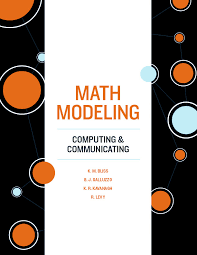

Currently I lead NC State University’s AI Advisory Group. We are responsible for developing and advising strategy for responsible and effective use of AI. We have three subgroups: Business Use (led by Mardecia Bell), Education (led by Helen Chen) and Research (led by Bill Rand). I also serve as the inaugural executive director of the university-wide Data Science and AI Academy.



Why Mathematical Modeling and Data Science Education?
Modeling with data provides people with powerful tools to inform decisions. As modelers gather and analyze relevant data, they consider the context of the problem and the objectives of the client. Modeling and data science almost always require simplifying assumptions, which can embed preferences, ethics and even biases. The mathematical sciences help us understand when algorithms and models work, how they work and under what conditions they can fail.
Professional Development
Cynthia Anhalt and I co-organized the 2019 Critical Issues in Mathematics Education workshop on Mathematical Modeling in K-16: Community and Cultural Contexts at the Mathematics Sciences Research Institute (MSRI). Video and materials are freely available. See this article by one of our participants and facilitators, Greta Mills.






Download SIAM and COMAP’s free Guidelines for Assessment and Instruction in Mathematical Modeling Education (GAIMME Report). Readers can “look over the shoulder” of expert facilitators of mathematical modeling and gain a gentle introduction to mathematical modeling from Kindergarten to Undergraduate classrooms.
Pomona Unified School District Math Modeling Summer Institute. (NSF STEM-C 1441024). PUSD teachers are available to provide professional development in mathematical modeling education to teachers from other school districts!


If you are looking for resources to teach mathematical modeling, check out Mathematical Modeling: Computing and Communicating, one of the many free resources offered by SIAM as part of the Mathworks Math Modeling Challenge (M3 Challenge) which welcomes high school student teams to the world of modeling and data science.

The Math Modeling Hub is an open online community and resource suite supported by COMAP, NCTM and SIAM.